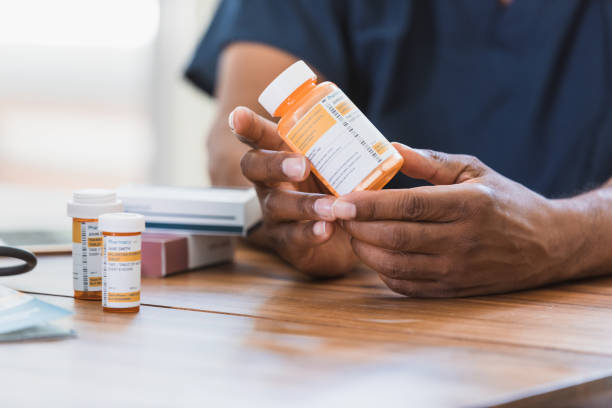When it comes to antibiotics, it’s important to take the dosage prescribed by your doctor. What happens if you double-dose antibiotics? In most cases, nothing bad will happen. However, there is a risk of antibiotic resistance if you take too much of an antibiotic. In this blog post, we’ll discuss what happens if you double dose antibiotics and the risks associated with doing so.
What Are Antibiotics?
Antibiotics are drugs that are used to treat bacterial infections. They work by killing the bacteria or preventing them from reproducing. There are many different types of antibiotics, and each one is specific for a certain type of infection. For example, some antibiotics are used to treat ear infections, chest infections, and urinary tract infections.

What Are The Types Of Antibiotics?
There are many different types of antibiotics, and each one is specific for a certain type of infection. For example, some antibiotics are used to treat ear infections, chest infections, and urinary tract infections.
Risks Of Taking Two Doses Of Antibiotics
Taking two doses of antibiotics when only one is needed can be dangerous, leading to potential side effects. It can also lead to antibiotic resistance, making the bacteria more difficult to treat in the future. If you accidentally take two doses of antibiotics, call your doctor right away. They will likely tell you to stop taking the medication and may even give you a different antibiotic to help clear the infection.
Antibiotic Resistance
Antibiotic resistance is a growing problem in the medical community. When antibiotics are overused, the bacteria they are meant to kill can become resistant to the medication. This means that future infections may be more difficult to treat. To help prevent antibiotic resistance, it is important to only take antibiotics when they are prescribed by a doctor and to finish the entire course of medication, even if you feel better.
Side Effects
Side effects of taking two doses of antibiotics include:
- diarrhea
- nausea
- vomiting
- rash
- headache
These are just a few of the potential side effects associated with taking too much of an antibiotic. If you experience any of these side effects, call your doctor right away. They will likely tell you to stop taking the medication and may even give you a different antibiotic to help clear the infection.
How Long Will You Need To Use Antibiotics For?
This depends on the type of infection you have. For most infections, you will need to take antibiotics for 7-10 days. However, some infections may require a longer course of treatment. Your doctor will let you know how long you need to take the antibiotic.
It’s important to finish the entire course of medication, even if you feel better. Stopping early can allow the bacteria to continue growing, which can lead to a relapse of the infection.
When To See A Doctor If You Have An Infection
If you have an infection, it is important to see a doctor. This is because infections can cause serious complications if they are not treated properly. Infections can also be very contagious, so it is important to see a doctor as soon as possible to avoid spreading the infection to others.
There are a few situations when you should see a doctor for an infection, including:
1. If you have a fever of 100.4°F (38°C) or higher
2. If you have chills or sweats
3. If your wound is red, swollen, or draining pus
4. If you have a cough or shortness of breath
5. If you have diarrhea or vomiting
6. If you feel very tired
7. If you have a sore throat, headache, or body aches
8. If you have any other symptoms that are causing you concern
When to Seek Emergency Medical Care
There are a few situations when you should seek emergency medical care for an infection, including:
1. If you have a high fever (104°F/40°C or higher)
2. If your wound is heavily bleeding or won’t stop bleeding
3. If your skin is hot and red, with spreading redness
4. If you feel faint or dizzy
5. If you have a severe headache or stiff neck
6. If you have confusion or difficulty waking up
7. If you have difficulty breathing or shortness of breath
8. If you have chest pain
9. If your cough is accompanied by green or yellow mucus
10. If you vomit blood or have bloody diarrhea

Are Antibiotics Safe For Pregnant Women?
Yes, antibiotics are generally safe for pregnant women. However, there are a few exceptions. For example, tetracycline antibiotics should not be taken during pregnancy as they can cause birth defects. If you are pregnant and have an infection, talk to your doctor about the best treatment options.
Things To Consider When Taking Antibiotics
There are a few things you should avoid when taking antibiotics, including drinking alcohol doses taking over-the-counter medications missing doses, and taking expired antibiotics. Taking these precautions will help ensure that your antibiotics are effective and be sure to contact your doctor and prevent further complications.
1. Do not skip doses or stop taking the medication early.
2. Do not take more than the prescribed dose.
3. Do not take antibiotics for viral infections, such as the common cold or flu.
4. Do not take antibiotics with alcohol or while pregnant.
5. Talk to your doctor before taking any other medications, including over-the-counter drugs and supplements.
6. Do not share your antibiotics with others.
7. Keep the medication in a cool, dry place out of reach of children and pets.
8. Dispose of unused medication properly according to your doctor’s instructions.
9. Wash your hands regularly and practice good hygiene to prevent the spread of infection.
10. See your doctor for follow-up appointments to make sure the infection is gone.
11. Talk to your doctor if you experience any side effects.
12. Be sure to complete the entire course of medication, even if you feel better.
13. Do not take antibiotics for minor infections or illnesses.
14. Use antibiotics only when prescribed by a doctor.
15. Avoid using antibiotics as a way to prevent illness.
16. Do not take more than one antibiotic at a time unless directed by a healthcare professional.
17. If you have allergies, be sure to tell your doctor before taking antibiotics.
18. Be sure to drink plenty of fluids while taking antibiotics to avoid dehydration.
19. If you are pregnant or breastfeeding, talk to your doctor before taking any antibiotics.
20. Never take someone else’s antibiotics or give yours to someone else without medical advice.
Conclusion
Taking two doses of antibiotics when only one is needed can be dangerous, leading to potential side effects. It can also lead to antibiotic resistance, making the bacteria more difficult to treat in the future. If you accidentally take two doses of antibiotics, call your doctor right away. They will likely tell you to stop taking the medication and may even give you a different antibiotic to help clear the infection. Thank you for reading!
